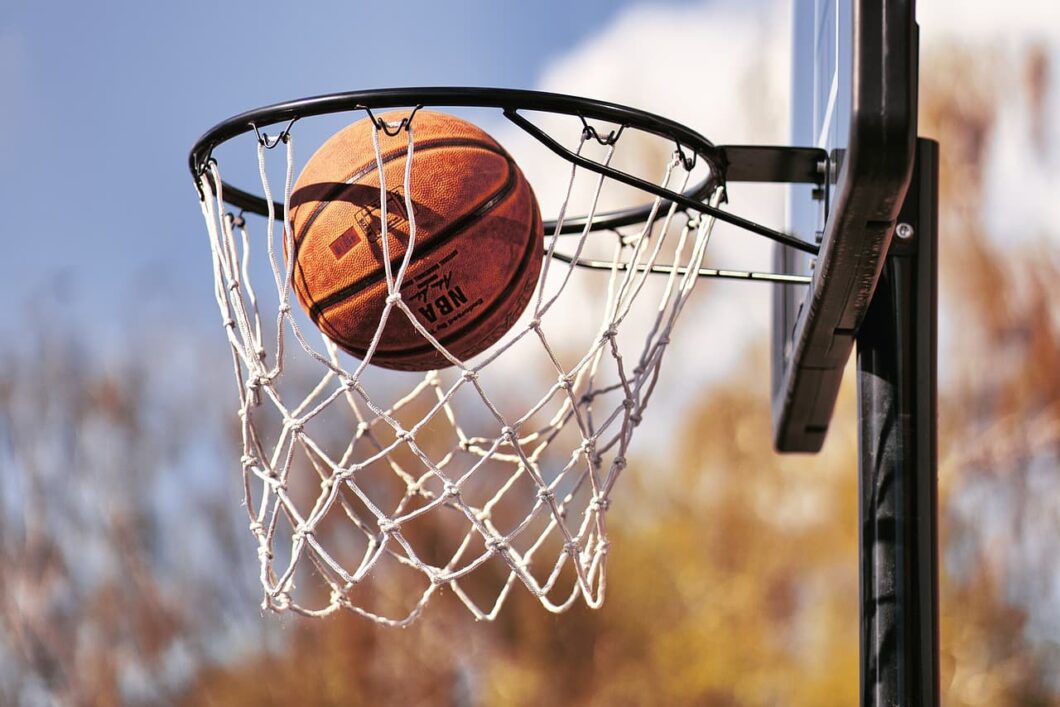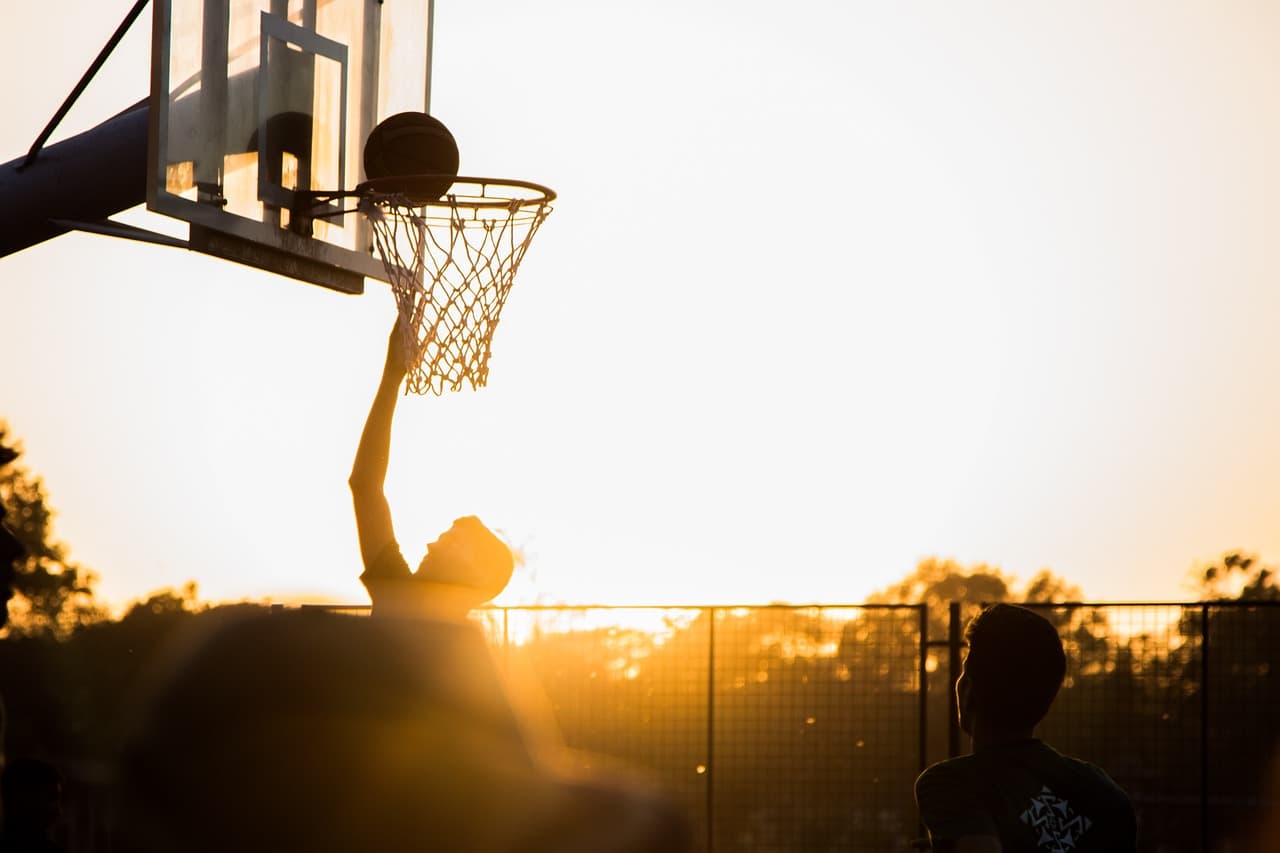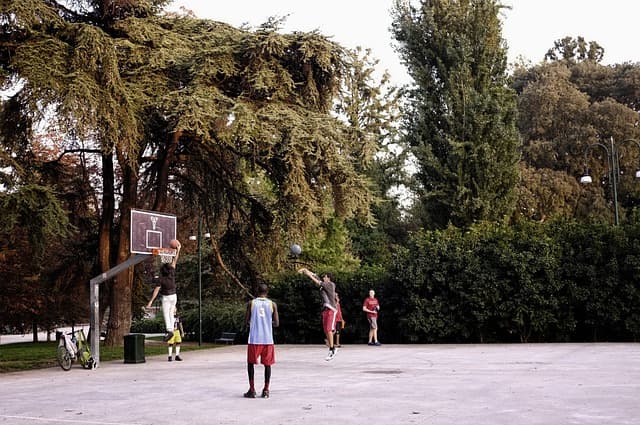Beyond the physical prowess demanded by basketball, the sport places a profound emphasis on mental toughness. This article delves into the psychology of winning in basketball, exploring the components of mental resilience that distinguish successful players and teams.
Visualization and Goal Setting
Mental toughness in basketball relies heavily on visualization and goal-setting. Successful players often engage in mental imagery, envisioning themselves making crucial shots, executing flawless passes, and outsmarting opponents. This not only boosts their confidence but also provides a mental roadmap for success.
Setting clear, achievable goals is equally crucial. Specific objectives, whether related to shooting accuracy, defensive skills, or overall fitness, help players stay focused and motivated. Success in basketball is often built on incremental achievements, and mentally tough athletes understand the importance of setting and reaching these smaller goals to foster confidence and resilience.
Resilience in the Face of Adversity
Basketball is a game filled with highs and lows. Mental toughness is synonymous with resilience – the ability to rebound from setbacks and maintain composure under pressure. When faced with challenges like missed shots, turnovers, or a point deficit, mentally tough players remain undeterred, using adversity as a catalyst for improvement.
Resilience is a skill cultivated through practice and experience. Coaches play a critical role in creating an environment that nurtures resilience, urging players to view failure as an opportunity for growth. Understanding that setbacks are inherent to the game allows athletes to approach challenges with a positive mindset, enhancing their mental fortitude.

Focus and Concentration
In the fast-paced world of basketball, maintaining focus and concentration is a mental skill that can tip the scales between success and missed opportunities. Players with mental toughness display an ability to stay present in the moment, shutting out distractions and honing in on the task at hand.
Mindfulness practices significantly contribute to enhanced focus. Techniques such as controlled breathing, meditation, and visualization exercises help players sharpen their concentration skills. Coaches often incorporate these practices into training sessions, emphasizing the importance of mental acuity alongside physical prowess.
Positive Self-Talk
The internal dialogue within a player’s mind can profoundly impact performance. Positive self-talk is a cornerstone of mental toughness, allowing athletes to override doubts and fears with constructive and affirming thoughts. This self-encouragement not only bolsters confidence but also nurtures a resilient mindset.
Coaches play a pivotal role in shaping the narrative of self-talk within a team. Emphasizing positive reinforcement and constructive feedback creates an environment where players feel supported and encouraged. This, in turn, contributes to a collective mental toughness that propels the entire team toward success.
Embracing Pressure Situations
Thriving under pressure is a hallmark of mentally tough basketball players. Whether facing a buzzer-beater situation or a critical free throw in the final seconds, those with mental toughness approach high-pressure moments with calm and confidence.
Simulating pressure situations in practice prepares players for real challenges. Coaches design drills that replicate the intensity of critical moments, allowing athletes to develop the mental composure required to perform at their best when the stakes are high.
Team Dynamics and Holistic Mental Toughness
In the realm of competitive basketball, team dynamics play a pivotal role in mental toughness. Communication, trust, and camaraderie among teammates contribute to shared mental resilience. Cohesive teams leverage this collective mindset to overcome challenges together, with coaches fostering an environment where individual mental toughness aligns seamlessly with the team’s ethos.
Moreover, the off-court life of players intertwines with their mental fortitude. Balancing the demands of training, competition, and personal life requires a robust mental framework. Athletes who prioritize mental well-being outside the court often exhibit heightened resilience and focus during game time. This holistic approach to mental toughness extends beyond drills and practices, shaping a player’s mindset on and off the hardwood.
Conclusion
In basketball, success is not solely determined by physical prowess; mental toughness is the key differentiator between good and great players. Understanding the psychology of winning involves mastering visualization, resilience, focus, positive self-talk, and an ability to thrive under pressure. Coaches and players must recognize the significance of cultivating these mental attributes alongside technical skills to achieve sustained success on the court. As the saying goes, basketball is as much a mental game as it is a physical one, and unlocking unparalleled performance requires a deep understanding of the psychology of winning.



